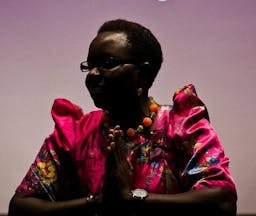The STRONG roots of HIV and AIDS ---my Family's experience
Jan 21, 2015
Story
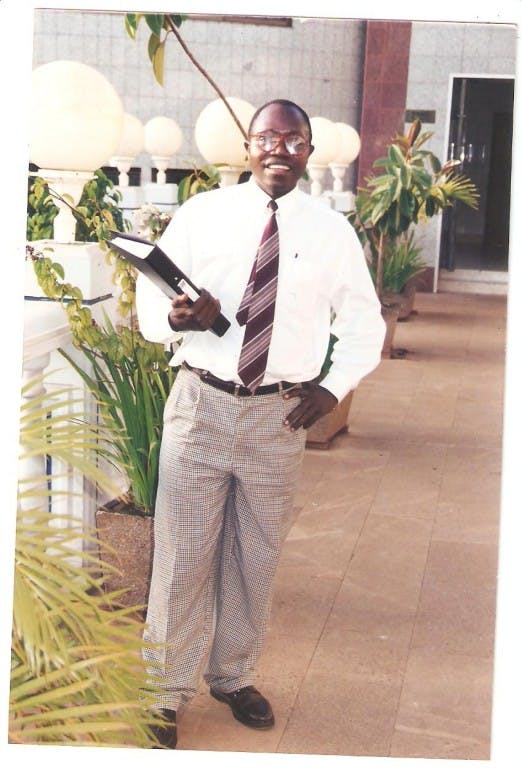
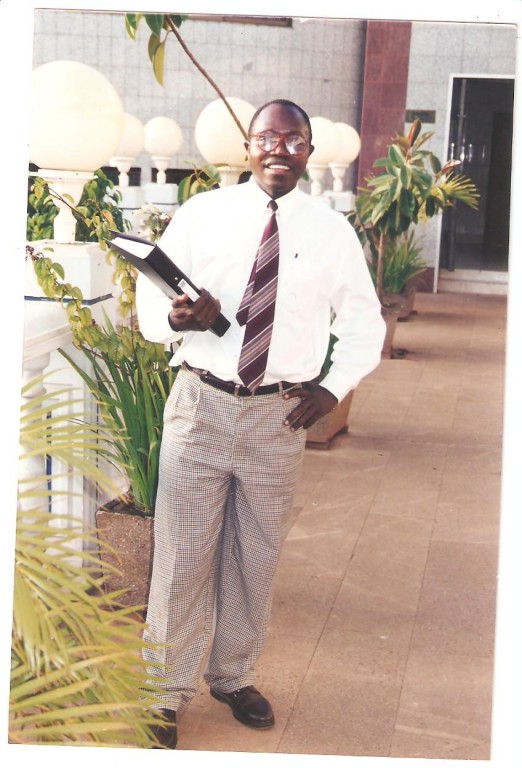
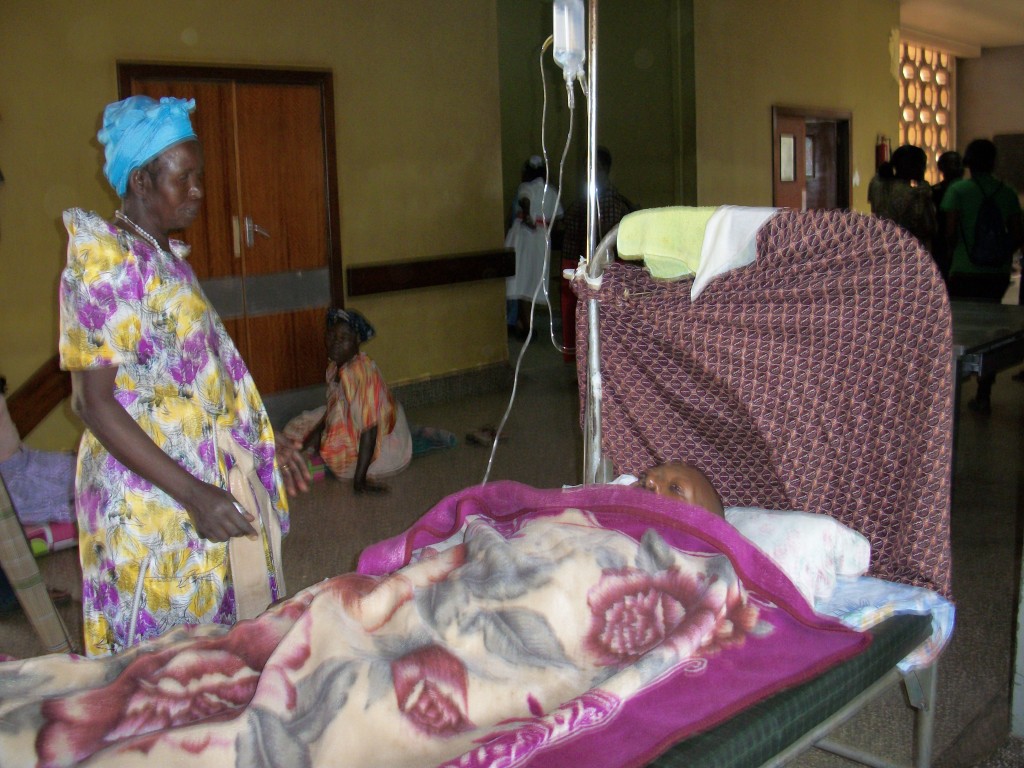
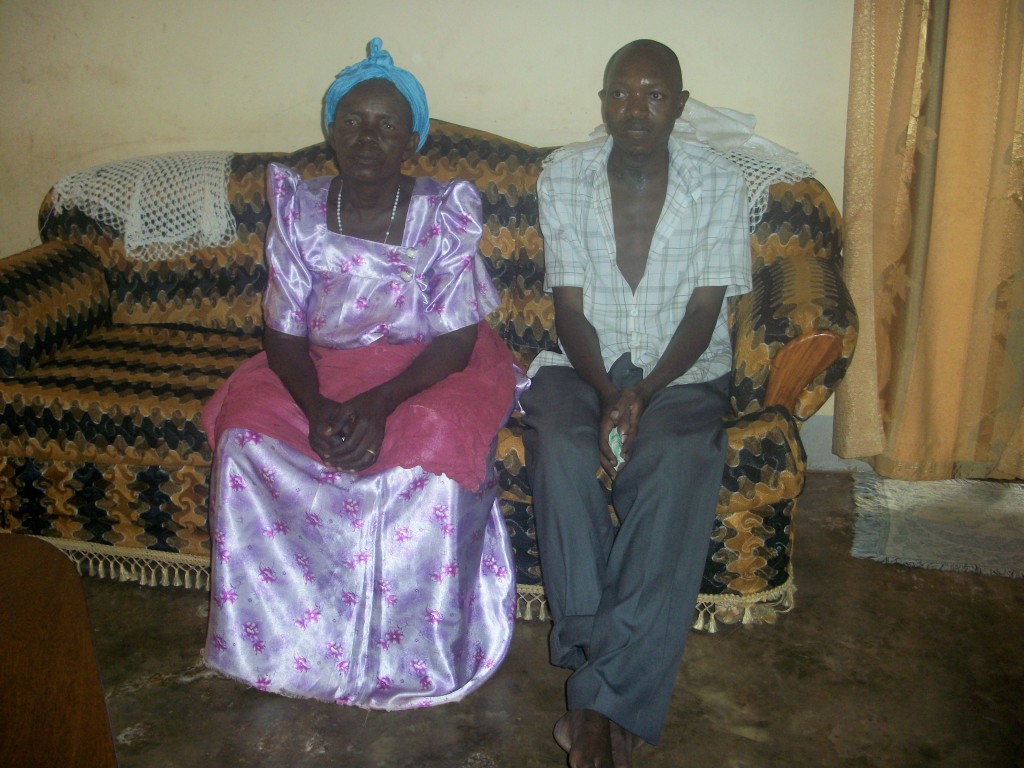
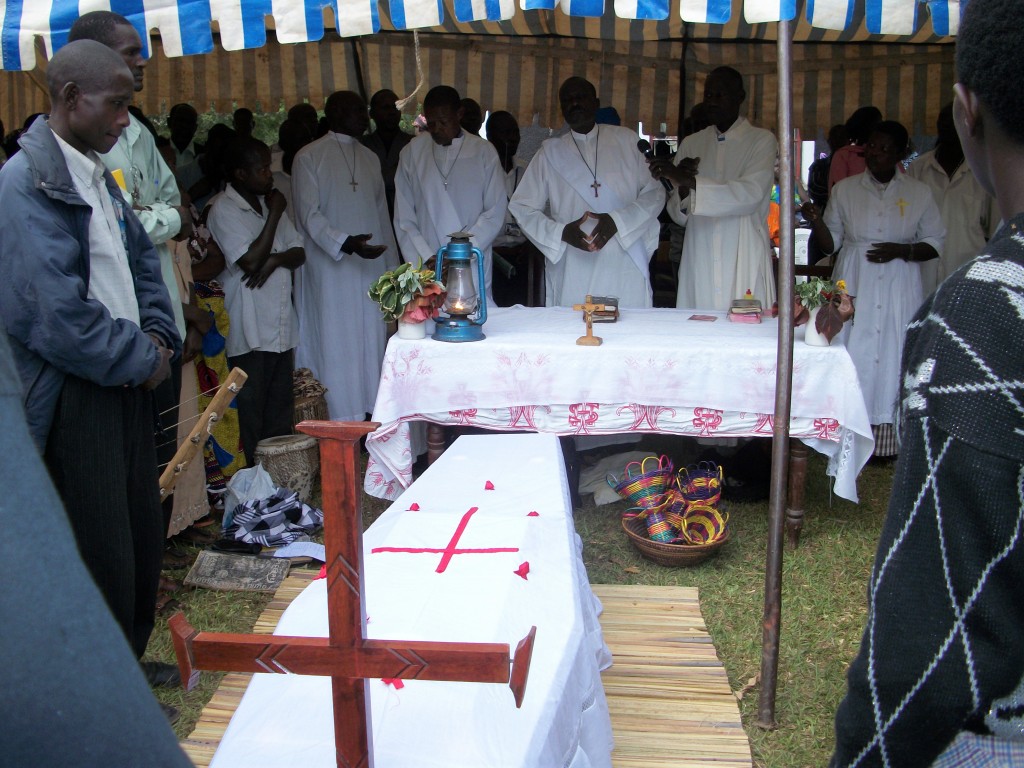
Resting her right hand on her chin, a 66-year-old mother of now three daughters says her plight is excess. “The cross is too heavy for me, seeing my children vanish like grass throbs my heart," says my mother, Nociata Alweny.
Having buried her only surviving son my mother says she would rather have died earlier than see her children who would have buried her die before her. “Sons buy salt for their parents, whose son will I go begging salt?” was her confession while mourning before the burial of her son mid this January.
Seeing my brothers' many graves lined up reminds me of the great gap in the family and the challenge therein. Having grown up in a large peaceful home of 12 and now reduced to 3 in less than a decade is an alarming loss socially, economically and politically.
When it comes to HIV/AIDS I can talk about it with all the boldness because it has finished my family: Seven of my brothers, including steps, are now nothing but graves, all my brothers vanished due to the epidemic; two of my sisters are gone the same way. My mother of eight now has three daughters and 17 orphaned grandchildren. Josephine my older sister, Josephine who is suffering in a very abusive relationship, she is the sole provider of their home as the husband spends time drinking and sleeping out for days with other women. I skipped off the frying pan of an abusive relationship after observing and witnessing what my family is going through and what my sister is going through. My younger sister, Sylvia, is just in high school hoping to study comprehensive nursing. I support my entire family. I can never forgive HIV, it can turn a yielding family into a graveyard and paint stress and agony in the faces of the survivors.
Land ownership in this situation has become another battleground. Having lost all the brothers who are believed to be the rightful landowners, my mother and her daughters have no voice on our own land, which is now being taken as community property. Being a densely populated community where land is and farmland are scarce, and the fact that the men in are family have been wiped out, the village elders are now saying we (our family) do not belong to that community.
It was in the 1830s when Obwaga, our great-grandfather, came to Amor–Kisoko (our village) as a herdsman to one family. Unlike the sons of the boss, he was meant to live in the bush (just like slaves are treated by their masters). Stories say wild animals like lions, leopards, snakes and the like lived therein but Obwaga bravely lived in the bush where he managed to make his family (a wife and children, grand children and great grand children) to the present day.
As the “boss’s” family grew large and larger, with many sons eating up their land, Obwaga had only one son Poti (our grandfather) and six daughters which daughters got married elsewhere, his only son possessed all the 10 acres of land. Poti had two sons and six daughters; unfortunately when one son died at an early age, only one was left Obbo – Poti (our father). Our father was fortunate to have 7 sons and five daughters, but all 7 sons plus two daughters have died due to HIV/AIDS, only one daughter died when giving birth to twins (free from HIV/AIDS).
'"The leaders of this village are going to strungle me to death now that I have no son to claim this land" says my Mother.
The loss of my final brother last week led to our current land problems. According to research by the presidential flag bearer of Federal Alliance Ms. Betty Kamya, in Uganda only 16% of women and children own land through inheritance and co-ownership. In Africa, gender inequalities in land rights are widespread. In addition to having less access to land than their male counterparts, women can often only hold land through male family members. In instances of divorce, widowhood or a husband’s migration, women run the risk of losing such entitlements.
Improved land and agricultural policies are also top on the women’s demand list. According to the research done by The Observer, a Ugandan news paper, Women till most of the land for commercial and subsistence purposes, but only own 7% it.
The patriarchal society insists the land belongs to males. Women are demanding laws and policies that will allow them to own a fair share of the land they have worked so hard to develop.
Another example by Inter Press Service is Regina Namukasa who has been twice dispossessed — first when her husband died and his clan left her out when dividing up his estate, and again when she was denied a share in her father's land. But this time she's fighting back.
Fifteen years ago, Namukasa's husband died, and she did not struggle with his relatives for a share of his estate; she moved back to her own family's home in central Uganda's Luwero district with her three children to start a new life.
But when her father died, his sisters decided only her younger brother was entitled to a share in the land, and asked her to leave.
Uganda's constitution grants women equality and legal protection against discriminatory traditional practice, but there have been no reforms to the law and the constitutional provision has had little impact.
Across sub-Saharan Africa, customary law is hindering efforts to reform land tenure and increase women’s access to and ownership of land.
Despite the fact that women form the majority of subsistence farmers in Africa, and play a critical role in food security, they typically have limited control over land.
'Far fewer women own land than men,' says Fatou Diop Sall, 'and often have access to land only through male family members, marking them as dependent mothers, wives or daughters. In cases where couples divorce, or a man dies, women often run the risk of losing their entitlement to land.'
Sall is the coordinator of a research project on gender and society at the University of Gaston Berger in Senegal.
Sall says Senegalese law stipulates that men and women have equal access to land. But just as in Uganda, the reality on the ground is markedly different. Women's representation on village land councils, for example, is limited; when it comes to inheritance, women are also often excluded.
'Despite what the law says, women are blocked from land control by cultural and economic factors. Most women do not have the financial might required to purchase a piece of land. When families are sharing out pieces of land, women are not allocated portions,' Sall says.
Namukasa's grandfather originally gave the piece of land in question to her father, and her aunts ruled it belongs to the clan; having been married, they say, Namukasa must look to her deceased husband's family.
'It's because of culture which dictates that girls are worthless and should get their share where they get married,' Namukasa told IPS.
She has turned to the courts to defend her rights. 'I approached the resident district commissioner for Nakawa, Fred Bamwine, who helped me by taking [the case] to court.' Namukasa is a defiant exception to the rule in Uganda and elsewhere.
Namukasa is a defiant exception to the rule in Uganda and elsewhere, she is a role model in my own current struggle to save my family's land, which we are losing because of my brother's death. When a family loses all of its menfolk, the land can be the next to go. In my case, it is AIDS that is wiping out my brothers and many other Ugandans.
HIV/AIDS has wiped out the majority of families not only in my village but the entire country, sub-Saharan Africa and most of the developing countries. The very high rate of HIV infection experienced in Uganda during the 80's and early 90's.
Health experts are warning that HIV prevalence is still high among women in Uganda.
The Minister for Health, Stephen Malinga says high HIV cases among women increases the risk of death during pregnancy and delivery. He says the challenges encountered by HIV/AIDS positive mothers are contributing directly to Uganda’s maternal mortality rate.The minister was speaking during a press conference in Kampala.
He warns that unless issues affecting women with HIV/AIDS are addressed, Uganda’s efforts at achieving the millennium development goals may be strained. An estimated 630,000 women are currently leaving with HIV/AIDS in Uganda.
HIV/AIDS in this country has been approached as more than a ‘health’ issue and in 1992 a “Multi-sectoral AIDS Control Approach” was adopted. In addition, the Uganda AIDS Commission, also founded in 1992, has helped develop a national HIV/AIDS policy. A variety of approaches to AIDS education have been employed, ranging from the promotion of condom use to 'abstinence only' programmes.
To further Uganda's efforts in establishing a comprehensive HIV/AIDS program, in 2000 the MOH implemented birth practices and safe infant feeding counseling. According to the World Health Organization (WHO), around 41,000 women received Preventing Mother To child Transmission (PMTCT) services in 2001. Uganda was the first country to open a Voluntary Counselling and Testing (VCT) clinic in Africa called AIDS Information Centre and pioneered the concept of voluntary HIV testing centers in Sub-Saharan Africa.
The Ugandan government, through President Yoweri Museveni, has promoted this as a success story in the fight against HIV and AIDS, arguing it has been the most effective national response to the pandemic in Sub-Saharan Africa. Though equally there has in recent years been growing criticism that these claims are exaggerated, and that the HIV infection rate in Uganda is on the rise, perhaps linked to over-emphasis on abstinence at the expense of condom use.
A number of organizations committed to fighting HIV/AIDS have launched a campaign to have all candidates participating in the 2011 Uganda General elections to pledge their commitment towards fighting HIV/AIDS.
To this day the impact of HIV/AIDS is very alarming in Uganda. Great numbers are living HIV-positive, including women and children (orphans, widows and widowers). Infected children stand a higher chance of infecting their peers as they become teens, and the circle continues. Orphaned children stand on an island of lack of support and most especially education. It is the very orphans we are employed as house maids and servants to the well to do families, only the fortunate minority receive support from the existing charity organizations.
HIV/AIDS remains one of the leading causes of deaths in Uganda, and a key development challenge as many HIV positive people spend scarce resources on treating opportunistic infections, fail to work due to sickness, as well as resulting in many orphans and dependants in addition to the increased burden to provide Antiretroviral drugs and other care.
Despite relentless efforts by the government of Uganda to fight the HIV/AIDS scourge, the HIV prevalence rates have stagnated in the past seven years causing concern among various stakeholders.
The silent cries of my mother, my orphaned nieces and nephews throb my heart daily, it challenges me, I am overshadowed with so many responsibilities. I am appealing to the people of Uganda to think about the lives of the innocent, the women and children. I am crying to the policy makers, land reformers to strongly defend the rights of the poor and the disadvantaged like my own family. The roots are STRONG, pressing the hearts of the voiceless children and widows. I am talking about the Strong roots of HIV and AIDS that swallowed my only brother, first born and the last to be buried last week.
Majority of Ugandan women today are running around in the political atmosphere for the forth coming general elections, they are attending rallies, performing dances and dramas therein. They are burning silently with these issues and the politicians running the national general election campaigns are making promises for support. I appeal to you politicians, if elected fulfill your promises, you are the eyes of the needles.
This article is part of a writing assignment for Voices of Our Future, which is providing rigorous web 2.0 and new media training for 30 emerging women leaders. We are speaking out for social change from some of the most unheard regions of the world.
